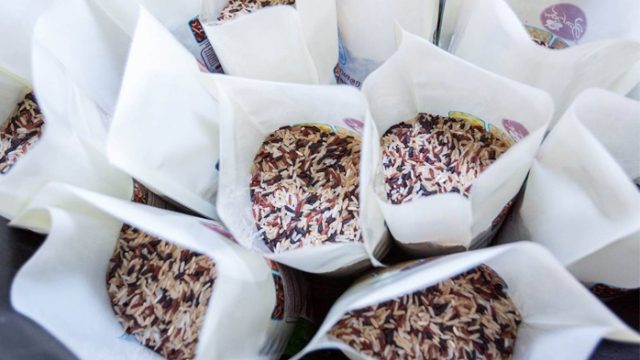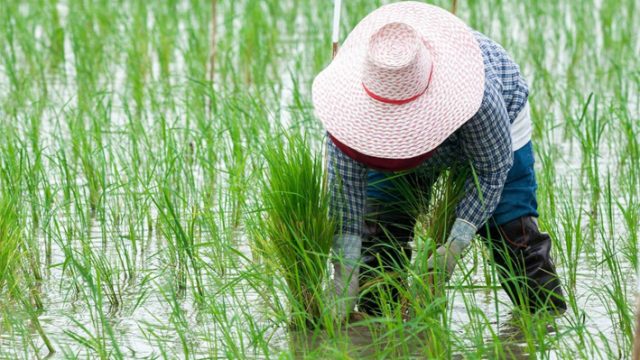Mrs. Lumpai Na-ngam has been a rice farmer all her life. Together with her family, she lives in the Ubon Ratchathani province in north-eastern Thailand, where rice production is often the only source of income for many families. However, in recent years, the rice harvest has been subject to lower yields and disease outbreaks. Furthermore, Lumpai, like many other farmers, had limited knowledge about the proper use of fertilizers. Many farmers have been running into debt. Some were even forced to leave their land. The circumstances have resulted in young people considering rice farming less and less as an attractive employment opportunity.
This country-wide trend is cause for a concern. 5.7 million households depend on agriculture, and approximately 50 per cent of Thailand’s land area is dedicated to rice farming. Rice cultivation is not only important for the food security of the local population but also affects Thailand’s export industry: Thailand is one of the world’s top three rice exporters and sells almost half of its rice harvest in export markets.
Source and Sufferer of Climate Change
Climate change presents an additional threat to Thai rice growers: Droughts, flooding, extreme weather, and higher temperatures negatively impact rice yields. At the same time, rice fields also contribute to climate change by emitting climate-altering gases like methane. Rice cultivation alone is responsible for 11 per cent of the global greenhouse gas (GHG) emissions from the agriculture sector.
As formulated in the country’s Nationally Determined Contribution (NDC) for the implementation of the Paris Agreement, Thailand aims to reduce its GHG emissions by at least 20 per cent by 2030. However, promoting rice production in order to improve the livelihoods for smallholders like Lumpai, while at the same time protecting the environment will be no easy task.
New Standard for Sustainable Rice Cultivation
To this end, the Better Rice Initiative Asia (BRIA) promotes the adoption of the Sustainable Rice Standard on Sustainable Rice Cultivation (SRP). The Standard’s main goals are to mitigate GHG emissions from rice cultivation, promote climate-resilient rice production systems and enhance the livelihoods of smallholders.BRIA is a collaborative effort between the German Federal Ministry for Economic Cooperation and Development (BMZ) and public, as well as private partners.
In Thailand, BRIA is collaborating with the Rice Department of the Ministry of Agriculture to train Thai farmers in the Ubon Ratchathani province on the SRP Standard. The climate-smart rice farming practices include the laser leveling of fields, as well as alternative irrigation and drying methods. Through the application of dry direct seeding, the amount of seeds needed to plant a rai (0.16 hectares) can be reduced from around 30 to five kilograms.
Water, labor and production costs for small landholders are not the only reductions. Direct seeding is also a climate-friendly alternative to the conventional wet-rice cultivation, which is a major source of GHG emissions in the agriculture sector. The SRP-Standard, therefore, helps Thailand to achieve its NDC goal for reducing emissions.
More Income, More Markets
With a growing global concern about food quality and a common desire for environmentally friendly production, the SRP Standard also opens up opportunities for Thai farmers to access new export markets. The new SRP standard, with is resource-saving approach to rice production, responds precisely to these market demands.
Lumpai joined the BRIA programme in 2016 and has dedicated 30 rai of her land to the pilot project. She has learned how to optimize the use of fertilizer, and with the support of BRIA experts and the Ministry of Agriculture, her rice yields have increased significantly. Her income has increased as well: the local mill was willing to pay more for SRP rice as an incentive for sustainable rice farming.
Source: Special website for COP23 launched by German Federal Ministry for Economic Cooperation and Development (BMZ) (www.bmz.de/en/service/feature/cop23/bria_thailand/index.html)


